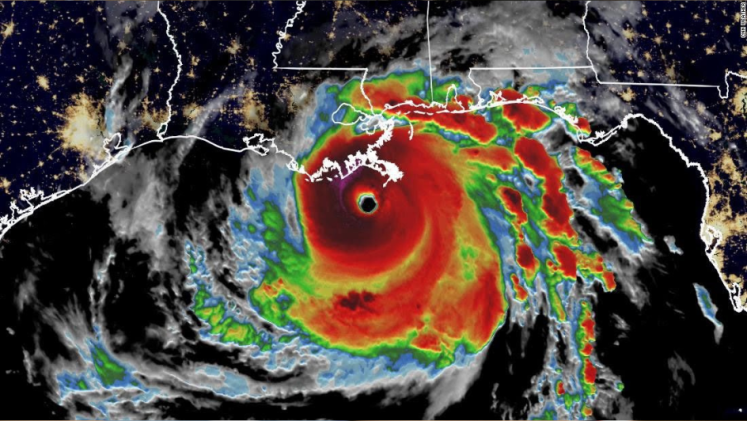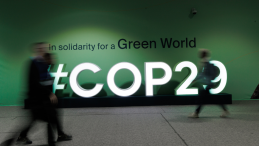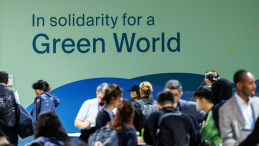Imagine trying to navigate a ship through stormy seas without all the navigation instruments humanity invented throughout the past centuries. That's the situation decision makers are putting themselves into when they choose to ignore solid science and actively block access to reliable data.
Science, with its emphasis on observation, hypothesis testing and empirical evidence, provides a robust framework for understanding the world, challenging existing assumptions and discovering new knowledge. High quality, reliable data allows us to quantify and forecast such things as the magnitude of a hurricane and the time when it makes landfall. It also gives us the ability to identify patterns and trends such as global temperature change over time. By relying on scientific principles and data-driven approaches, we can develop evidence-based solutions from local to global challenges.
At the United Nations University Institute for Environment and Human Security (UNU-EHS), we conduct research on advancing human security and well-being by addressing present and future risks arising from environmental hazards and climate change. By relying on scientific principles and data-driven approaches, we develop evidence-based solutions to challenges, including disaster risk reduction (e.g., implementing early warning systems for all), climate change adaptation (e.g., nature-based coastal protection and climate finance solutions), and transformation towards resilient societies (e.g., adaptive social protection). In our work with UN Member States and institutions globally, we witness daily the growing importance of accessible science and reliable data paired with trustworthy international collaboration to navigate today’s systemic challenges in an increasingly complex and interconnected world.
Access to data and information is not important for policymakers only, but for every one of us. It fosters science and data literacy, which are essential skills for all citizens today. These skills enable individuals to critically evaluate information, make rational decisions, and participate meaningfully in public discourse. Science plays a crucial role in combating fake news and misinformation. It helps us cut through the noise, make better decisions and critically engage with the interconnected challenges of our time.
On the flipside, when science is sidelined or data access impaired, the risk of poor choices increases. Disasters do not stop at national borders. If lighthouse institutions with a long-term track record in acquiring data were to stop recording and sharing data, the entire world would lose out. Lack of access to high quality and reliable climate records for instance leads to less accurate predictions, impaired disaster preparedness and greater uncertainty in decision-making for now and the future.
Limiting access to data and sidelining science leaves decision makers uninformed about the facts and physical guardrails of our common world. Worst of all, it leaves us fumbling in the dark, ignoring very real threats that do not disappear just because we close our eyes to them. The threat is not theoretical. Reduced access to data and early warning systems, for instance, puts people at risk as we lose the chance for early action with drastic impacts on human life and livelihoods.
In times where science is under increasing threat and access to data sources is actively and systematically blocked, UNU-EHS remains committed to collaborative partnerships worldwide to leverage data and cutting-edge science to reduce climate risk, provide early warning, accelerate adaptation efforts and use science to build resilient, low-carbon societies that ensure a sustainable future for people and the planet.
Explore UNU-EHS´ work and find out about ways of getting connected.





